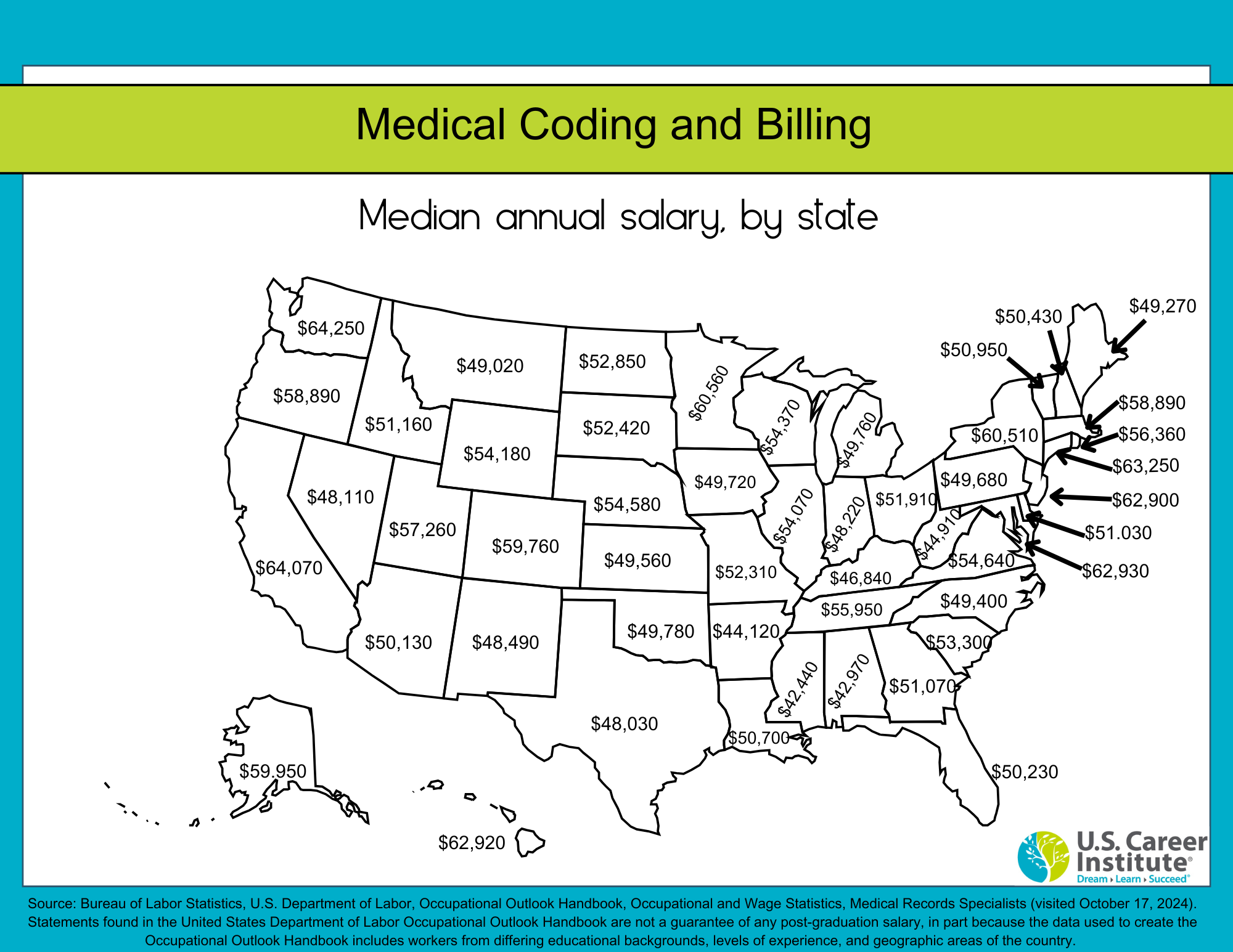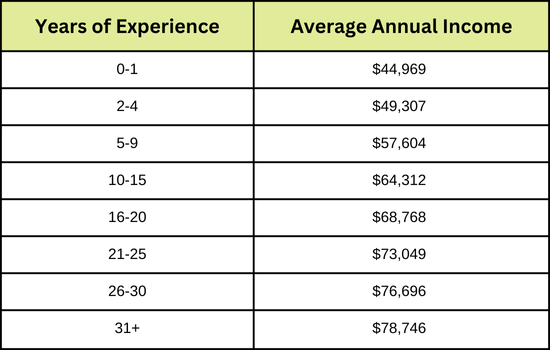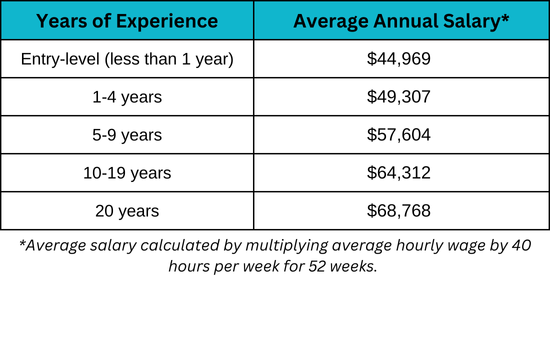Earning Potential for Medical Coding and Billing Professionals
By: Jenn Hall | October 2024
October 2024
There are several factors that go into choosing your career path – and earning potential is a big one. Before you invest in training and certification to pursue a career in medical coding and billing, it’s important to understand the financial impact of that decision and ways in which you can increase your earning potential.
According to the BLS, the median salary for professionals who work in medical coding and billing is $48,780. ZipRecruiter reports similar findings, noting the average salary for this career, nationwide, as $45,672. This profession is expected to grow much faster than average over the next 10 years and 40% of employers say it’s difficult to find quality medical coding and billing specialists compared with last year. This is great news for new and existing medical coding and billing professionals as the opportunity to build a strong career in this field is high.

Depending on the path you choose and the common factors influencing your earning potential, medical coding and billing professionals can expect to see a salary ranging from $35-77k. Dive deeper into the influencing factors to see where your salary could land.
Top 5 Factors Influencing Earning Potential
Your earning potential as a medical coding and billing professional is influenced by several key factors, including education, professional certification(s), and location. The good news is, you have control over several of these factors.
#1: Medical Coding and Billing Education and Training
Most employers require a minimum of a high school diploma or equivalent, as well as experience with standard medical diagnoses and procedure codes and billing procedures. Without prior experience, a great way to attain this specialized knowledge is through a medical coding and billing training program from an accredited education provider. After your training, you will likely walk away with a medical coding and billing certificate or degree. The level of education you pursue may impact your starting salary.
Achieving your medical coding and billing certificate is typically a faster and less expensive entry point into this career field. Once you have your certificate, you may choose to pursue a degree program. A degree will enhance your education and improve career opportunities. For example, the AAPC reported that in 2023, the average salary for a medical coding and billing professional with an associate’s degree was $59,663.
#2: Professional Certification
Earning one or more professional certifications is a great way to not only showcase your knowledge and expertise to potential employers and colleagues, but also influence your earning potential.
Earning a professional certification is not only an important milestone in your education journey, it also demonstrates a higher level of knowledge and achievement that can be used to negotiate your salary with your employer.
According to the NHA’s 2024 Industry Outlook report, 83% of “employers state they would hire a candidate with nationally recognized certifications over someone without,” and 65% require certification for medical coding and billing specialists.
According to the AAPC’s Salary Survey Report, average annual salaries for professionals with certification include:
- Certified Professional Coders (CPC): $64,495
- Certified Inpatient Coder (CIC): $74,475
- Certified Outpatient Coder (COC): $70,663
- Certified Risk Adjustment Coder (CRC): $71,747
- Certified Professional Biller (CPB): $60,316
- Certified Professional Coder (CPC): $64,945
Additionally, the report shows a 16% increase in salary potential for professionals who have earned one certification, compared to non-certified professionals. That percentage jumps to 32% higher with two certifications or 41% with three or more certifications.
Certifications within specialized healthcare sectors (e.g., ophthalmology) also can garner higher wages.
#3: Location
Where you live within the country will determine at least a portion of your salary range. For example, if you live in a state with a low cost of living, your salary range will reflect that income need. Conversely, if you live in a high cost of living state, your salary range will rise to meet that expectation. The states offering the highest salaries for medical records specialists, on average, include the District of Columbia (DC), Maryland, Washington, California, and Connecticut.

#4: Work Environment
There are a number of healthcare facilities that you may choose to work within, including:
- Hospitals
- Insurance companies
- Physician offices
- Ambulatory surgery centers
- Walk-in clinics
- Assisted living and long-term care facilities
- Home health agencies
- Hospice groups
- Telehealth companies
- Medical laboratories
- Imaging centers
The facility type you choose will impact your salary. For example, the U.S. Bureau of Labor Statistics (BLS) reports insurance carriers as one of the top paying industries for medical records specialists with an annual mean wage of $69,330.
The highest levels of employment are reported as:
- Hospitals with an annual mean salary of $57,600
- Physician offices with an annual mean salary of $46,010
- Nursing care facilities with an annual mean salary of $47,400
- Management companies and enterprises with an annual mean salary of $59,060
- Outpatient care centers with an annual mean salary of $56,510
The BLS says specialty hospitals, with the exception of psychiatric and substance abuse, have one of the highest concentrations of employment for medical coding and billing specialists. The annual mean salary in a specialist hospital is $59,260.
#5: Experience
The number of years of experience in medical coding and billing also will have an effect on your salary. The more experience, the more compensation you can expect.
According to the AAPC, medical coding and billing professionals can expect to see the following salary growth over their career:

Payscale reports similar salary expectations, noting:

